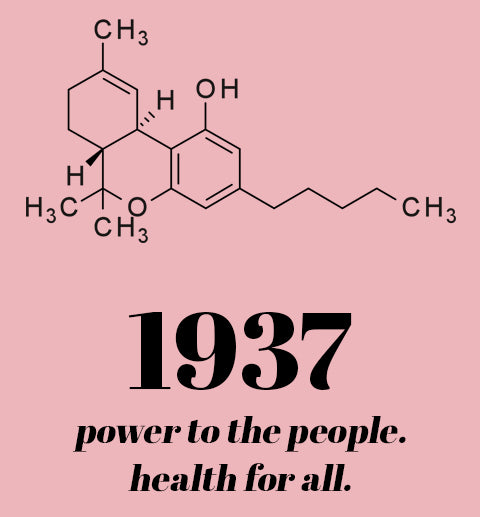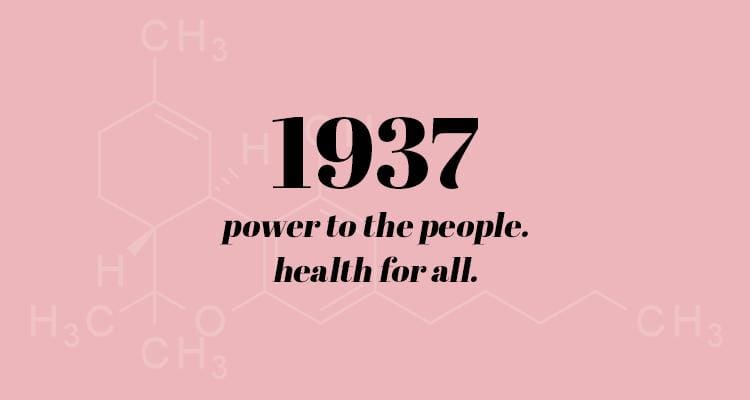Hemp Oil and CBD Oil: What’s the Difference?

CBD oil has exploded in popularity all over the marketplace. By now, you’ve probably seen signs for stores carrying the oil, or even for stores exclusively selling CBD products. CBD oil has enormous benefits for a wide range of ailments—everything from anxiety to epilepsy.
It’s the new natural treatment method, and for good reason (it works!). Migraine? Take some CBD oil. Eczema? Rub some CBD oil on it. Acne taking over your face? CBD oil can help.
But not all hemp-derived oils are made equally, and the producers of the products—like snake-oil salesmen of old—are sometimes out to trick you. You do need to know what you’re looking for on the label, and I’m here to break it down for you.

CBD Oil Isn't Like THC
Cannabidiol, also known as CBD, is one of the cannabinoids present in the cannabis sativa plant. There are over 100 compounds present in the cannabis plant, but CBD is arguably one of the most beneficial.
Tetrahydrocannabidiol, or THC, is another well-known compound derived from cannabis—you’ve no doubt heard of this one because it produces a euphoric high. But if you’d prefer not to get high while treating your eczema, you can rest easy. CBD is a completely different compound than THC; it doesn’t have the same psychoactive effect when consumed.
Legally, hemp must have less than 0.3% of THC, and CBD oil contains none at all.
In fact, CBD has a completely different effect on your brain than THC. According to this study on epilepsy, CBD can not only reduce inflammation in your body, but it also blocks pain receptors in your brain.
What to Look for on the Label:
- Company name. There are so many companies out there who produce CBD oil that you want to make sure you’re buying from an honest one. Go to their website and make sure they do third-party lab testing of their products. Many companies have been warned by the FDA for printing misleading information about the concentration of CBD contained in their products, and even for the presence of solvents/toxins in the oil. If you’re trying to treat a medical condition with CBD oil, you want it as pure as possible! Extraction methods matter, too. CO2 extraction is the cleanest and purest, and that’s the one to look for on the label (as opposed to oil and ethanol).
- Concentration of CBD. In drops and vape oils, you’re looking for a number between 100-1000 mg. This should be the amount of CBD contained in the entire bottle. So if your bottle says 1000 mg of CBD, and the entire bottle is 30 ml, then each drop will have a concentration of 33 mg of CBD. For gummies and capsules, it should tell you the concentration per serving. If the number seems really high—like 100 mg—then it’s likely the amount for the entire package. For balms, you want to compare the concentration to the weight of the product. A 750 mg concentration for 1 oz is higher than 1000 mg for 2 oz, for example.
- THC content. It should clearly state on the bottle that there is zero THC, 0% THC, or no THC.
- Flavors and other ingredients. CBD labels may also include information about flavors, sweeteners, oils, and other ingredients. The FDA has no requirements for labels, so manufacturers can include what they want…which opens the door for companies to mislead consumers. Be sure to do a little research about the producer of CBD oil before you purchase.
Hemp Oil and Hemp Seed Oil: Know the Difference
Hemp oil and hemp seed oil are sometimes used interchangeably, but they’re slightly different. Hemp oil can refer to a full-spectrum oil derived from the hemp plant which contains plant matter and other compounds. Hemp seed oil, on the other hand, is made by pressing the hemp seeds until oil is secreted. CBD oil is extracted from the stalks, leaves, and flowers of the hemp plant.
Hemp oil contains the fatty acids omega-3 and omega-6, which are both essential to good health. Omega-3 is the fatty acid that helps prevent and manage heart disease, and hemp seed oil can be a much more palatable option than taking cod liver oil. Omega-6 fatty acids have a little more controversy behind them—as much controversy as a fatty acid can have anyway—because there have been critics who say omega-6 can cause inflammation rather than alleviate it.
This article by Harvard Health, however, states that omega-6 fatty acids lower harmful LDL cholesterol while boosting HDL. I’m going to go with Harvard on this one and just say that omega-6 is a good thing, and hemp oil is a great source of it.
Because hemp oil is less expensive to make than CBD oil, some manufacturers label hemp oil as CBD. They’re both derived from the same plant, so they figure they’re mostly telling the truth. That’s why it’s so important to check out the company’s website and make sure they’re legitimate, but you can also look at the label and see what the specific ingredients are. If it’s hemp oil, the label will say cannabis sativa seed oil. If it’s truly CBD oil, it should be labeled as cannabidiol.
Hemp oil has many benefits for your skin. It helps to balance out your skin’s natural oil production, providing moisture while not clogging your pores. One of the omega-6 fatty acids hemp oil contains is a known anti-inflammatory. This is helpful to skin conditions like dermatitis, which cause a dry, red, flaky rash. For aging skin, it can reduce fine lines and wrinkles, as well as prevent new signs of aging from occurring. Because hemp oil is so moisturizing, it’s especially useful for drying skin conditions like eczema.
Top Uses for Hemp Oil:
- Skin health. Because of the lipids and fatty acids contained in hemp oil, it’s extremely good at nourishing the skin and protecting it from inflammation and other signs of aging. This 2014 study found that hemp oil can even be helpful in treating acne, rosacea, eczema, dermatitis, and psoriasis.
- Brain health. As mentioned before, hemp oil contains omega-3 and omega-6, which are both important for brain health. There was even a recent study with mice that found that hemp oil derivatives helped with brain inflammation.
- Heart Health. In addition to omega-3 and omega-6, hemp oil contains alpha-linoleic acid, which has evidence of reducing the risk of cardiovascular disease.
How to Choose A Hemp Seed Oil:
- Company name. As with CBD oil, spend some time researching the company and make sure they are reputable. A money-back satisfaction guarantee is always a good sign. They should also be willing to answer questions and have good customer service.
- Extraction method. You can think of hemp seed oil like coconut oil, so you want to look for ones that have been cold-pressed because they retain the oil’s nutritional value, flavor, and aroma.
- Organic. As with so many things we put in or on our bodies, organic is best. This way, you can be sure it’s pesticide-free.
- Food-grade. If this is an oil that you intend to consume, you should make sure the label makes sure it is of food-grade quality.

The Cannabis Plant Species
Did you know the marijuana plant and the hemp plant are two separate varieties? This is why it gets so confusing about whether CBD and hemp oil contain THC. Here’s how to differentiate them:
Marijuana Plant
- Can come from a different species. Marijuana is a flower dried from either cannabis indica or cannabis sativa. Marijuana is also bushier with broader leaves than hemp.
- Produces THC at higher levels. THC is present in levels of 20% or greater in the marijuana plant because its whole purpose is to get you high.
- Produces CBD at lower levels. It produces CBD in 10% or more, but this is a smaller amount than the hemp plant.
- Has medicinal and therapeutic uses. Can be used for chronic pain, mental health, and illnesses.
- Mostly illegal. There are only a few states where marijuana is completely legal, including Alaska, California, Colorado, Maine, Massachusetts, Michigan, Nevada, Oregon, Vermont, and Washington.
Hemp Plant
- Comes from only one species of plant. Hemp can only come from the cannabis sativa plant. Hemp’s leaves are shinier and not as broad as marijuana’s.
- Produces THC at lower levels. Legally, hemp must contain less than 0.3% of THC to be sold.
- Produces CBD at higher levels. Hemp produces CBD at 20% or more.
- Has many uses. Aside from the uses of its oils mentioned above, hemp can be used for rope, clothing, paper, etc. The list goes on and on…really. There are 50,000 uses for hemp according to this article.
- Completely legal. It’s fully legal, but hemp is heavily regulated. It’s because of this new legislation that the explosion of CBD oil on the market occurred, and it all started with the signing of the 2018 Farm Bill.
Now I’ve armed you with enough CBD and hemp oil knowledge that any snake-oil salesman will stay far away from you. Go forth and buy with confidence!

Jessica Leake is a psychotherapist (licensed clinical social worker) and author of four traditionally published novels, the two most recent by HarperTeen. She lives in Greenville, SC with her pharmacist husband and their four young children. She invites you to learn more about her (but mostly her books) at jessicaleake.com.

